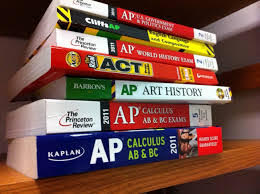PRESSURE: Students who take AP classes are more likely to report high levels of stress.
By Jennifer Hibbard, Staff Writer
Stress is a near-universal experience among high school students. According to “High-stress High School,” an article from The Atlantic by Alexandra Ossola, 49% of high school students report feeling “a great deal of stress” on a daily basis. With family, clubs, extracurriculars, volunteer hours and more, it’s no surprise that students might feel like they’re performing a juggling act at the circus. Add an AP class or two into the mix, and these high levels of stress skyrocket. Not only do AP courses cover their subjects in-depth at a college level, but they also teach valuable lessons such as persistence and work ethic. However, as most life lessons do, these come at the price of long hours and mental exhaustion.
AP students take classes that pile on many more assignments than regular classes do, meaning hours of homework after school. As if that wasn’t enough, most AP students also participate in extracurriculars and clubs, leaving almost no time for vital relaxation during the day. While AP classes do increase the chances of admission into prestigious colleges, the quickly-mounting stress levels among students should be enough to beg the question: What can I do about it?
To answer that question, 53 students (38 of whom take more than one AP class) participated in an informal online survey in which they anonymously answered these questions:
- Do you take AP Classes?
- If so, do you take just one, or do you take 2 or more?
- Do these classes make you feel stressed?
- What do you do to relieve the stress of AP classes?
The results came back perhaps even more alarming than the original study had predicted. A staggering 84% of the students voted “yes” to the third question, with only 6 students voting “no”. Luckily, they have some suggestions for coping with the academic pressure.
26 students responded to the final question, some of whom offered multiple coping mechanisms. These responses fit into multiple categories. 19% of respondents to the fourth question say that staying on top of their workload helps them be calm, while 42% explained that they prefer to eat, exercise or sleep. 65% of responses cite other methods, such as listening to music (12%) or flat-out crying (31%). Hopefully, through greater understanding of how rigorous academic courses affect mental health, we can reduce the “crying” responses to 0% and improve the lives of ambitious high-school students.

